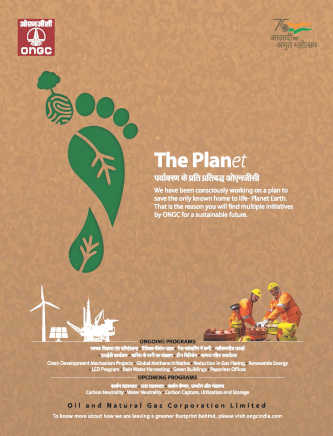The Budget 2022 tabled by Union Finance Minister Nirmala Sitharaman laid stress on the impact of climate change and announced plans to counter the negative development that would affect the economy. She said that the ministry was working in line with announcements made by Prime Minister Narendra Modi at the COP26 (2021 United Nations Climate Change Conference) Summit in Glasgow. The finance minister announced four pilot projects for the conversion of coal to energy along with an additional allocation of Rs19,500 crore to facilitate domestic manufacturing to boost 280 giga watts of installed solar capacity by 2030. The allocation to the Production Linked Incentive (PLI) for manufacturing high-efficiency modules for polysilicon will boost the country’s solar capacity. The Centre will prioritise to fully integrate manufacturing units to solar PV modules in 2022-23, the minister announced in her budget speech. “Risks of climate change are strongest negative externalities that affect India and other countries," Sitharaman said. Quoting Prime Minister Narendra Modi, she said: “What is needed is mindful and deliberate utilisation instead of mindless, destructive consumption.” She said that the low carbon development strategy that PM Modi announced was an important reflection of the government's strong commitment to sustainable development. “The strategy opens huge employment opportunities and will take the country on a sustainable development path. This budget proposes several near-term and long-term plans,” she said. On energy efficiency, she said that measures would be promoted among businesses through an energy service company business model that would facilitate capacity building and awareness for energy audits. Meanwhile, the Centre will also introduce policies to promote agro-forestry and private forestry to boost green cover. The Centre will provide financial support to farmers from SC and ST communities for agro-forestry. Amid growing levels of emissions and extreme events from climate change, the finance minister said that the government would issue sovereign Green Bonds in public sector projects to reduce carbon footprint in the economy. Green energy and clean mobility systems have immense potential to modernise the country and make Indian industry more inclusive, she said. The Economic Survey presented a day before noted that climate finance would remain critical to successful climate action for India to achieve its net-zero carbon emission target by 2070. The survey said that India’s performance on the Niti Aayog SDG (Sustainable Development Goals) India Index improved from an overall score of 60 in 2019-20 to 66 in 2020-21. President Ram Nath Kovind had on Monday said that India emerged as a responsible global voice on the issue of climate change and its ambitions are a testimony to the country's sensitivity towards nature. Addressing the joint sitting of both houses of Parliament, Kovind said, “Climate change is a major challenge confronting the whole world at present. India has emerged as a responsible global voice on the subject.” “India has also committed to a target of becoming a net-zero emission economy by 2070. India has also taken the initiative of 'Green Grid Initiative: One Sun, One World, One Grid' with the global community. It is the first international network of globally interconnected solar power grids.”
-

Sitharaman: Risks of climate change are strongest negative externalities that affect India and other countries























